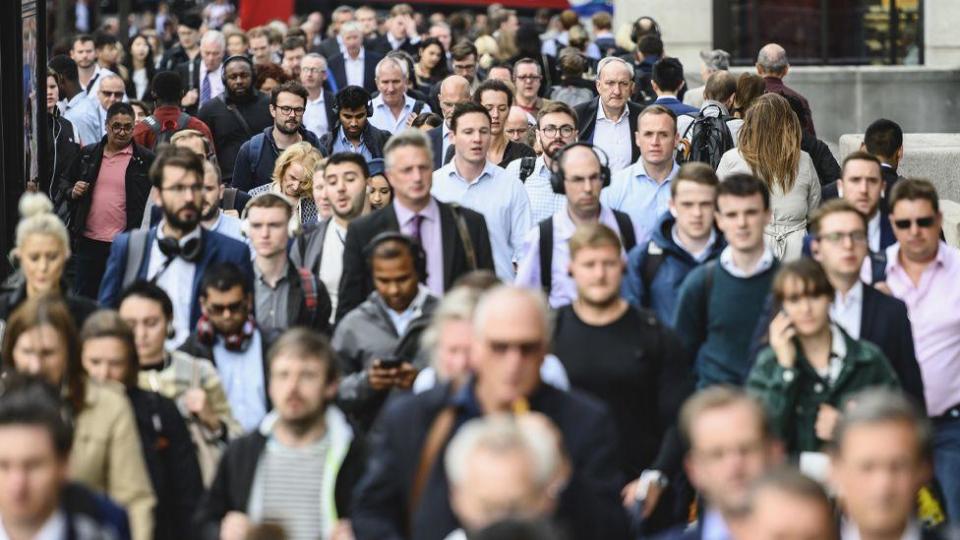Government borrowing in May is highest since Covid

Government borrowing in May hit the highest since the Covid crisis but was lower than the UK's fiscal watchdog had forecast.
Borrowing reached £15bn last month, which was £800m higher than May last year.
It means that the public sector spent more than it received in taxes and other income, leading the government to borrow billions of pounds.
It is the third highest figure for May since records began in 1993, surpassed only by the pandemic years.
However, borrowing was £600m less than the Office for Budget Responsibility (OBR) had expected.
With the general election fast approaching, whichever party wins will face similar challenges on tax, spending and debt, economists have warned.
“Government borrowing holds steady but the fiscal Pandora’s box awaits for the next chancellor,” said Michal Stelmach, senior economist at KPMG UK.
"Interest rates are set to remain higher, debt more difficult to bring down and spending pressures continue to mount."
While there were some bright spots in May's borrowing figures, according to Simon Wells, chief European economist at HSBC, he pointed out that government debt was at an “extraordinary” level - and the highest since the 1960s.
Government debt as a percentage of UK economic output - commonly known as gross domestic product - was at 99.8% last month.
"What has happened is public sector debt has ramped up, first through the global financial crisis and then again through Covid so it is at historically high levels," Mr Wells told BBC Radio 4's Today programme.
High levels of debt means that public sector finances are vulnerable to higher interest rates which makes repayments more costly. Mr Wells warned that large debt leaves less headroom to deal with any future crisis.
The Bank of England had been raising interest rates in an effort to bring down UK inflation but one knock-on effect of this is the government having to pay more interest on debt.
Last month, the interest payable on central government debt was £8bn, which was one of the highest amounts on record.
Tax is a key battleground in the upcoming general election, with the Conservatives, Labour and Liberal Democrats all ruling out increasing income tax, VAT and National Insurance rates.
Cuts in National Insurance have eaten into how much money the government receives at a time when politicians are unwilling to commit to spending more on public services.
The government received £900m less from National Insurance in May than it did in the same month last year.
But overall, tax receipts rose by £1bn after revenue from income, corporation and value added taxes increased.
Taxes, including income tax, have effectively been rising after a government freeze on thresholds - the amount of money people earn before they start paying tax or before they start paying a higher rate.
Thresholds usually rise in line with inflation, but in 2021 the Conservative government froze most bands in response to Covid.
This has pulled more people into paying higher rates, in a phenomenon known as "fiscal drag".
Retail sales rebound
Meanwhile in separate figures on Friday, retail sales rebounded in May after heavy rain put a dampener on April activity.
The amount people bought - volumes - rose 2.9% in May, after a fall of 1.8% in April following poor weather. The value also rose, up 3.2%.
Danni Hewson, head of financial analysis at AJ Bell, said it is "little wonder we Brits are obsessed with the weather".
"A bit of sunshine in the month of May which helped lift temperatures and spirits translated into a bump in sales, especially for clothing and furniture retailers," she said.
Jacqui Baker, head of retail at auditors RSM UK, said consumers had "stocked up on clothing in anticipation of their summer holidays and rumours of a UK heatwave" in May.
But she added that "confidence to spend on big ticket items remains low".

 Yahoo Finance
Yahoo Finance 